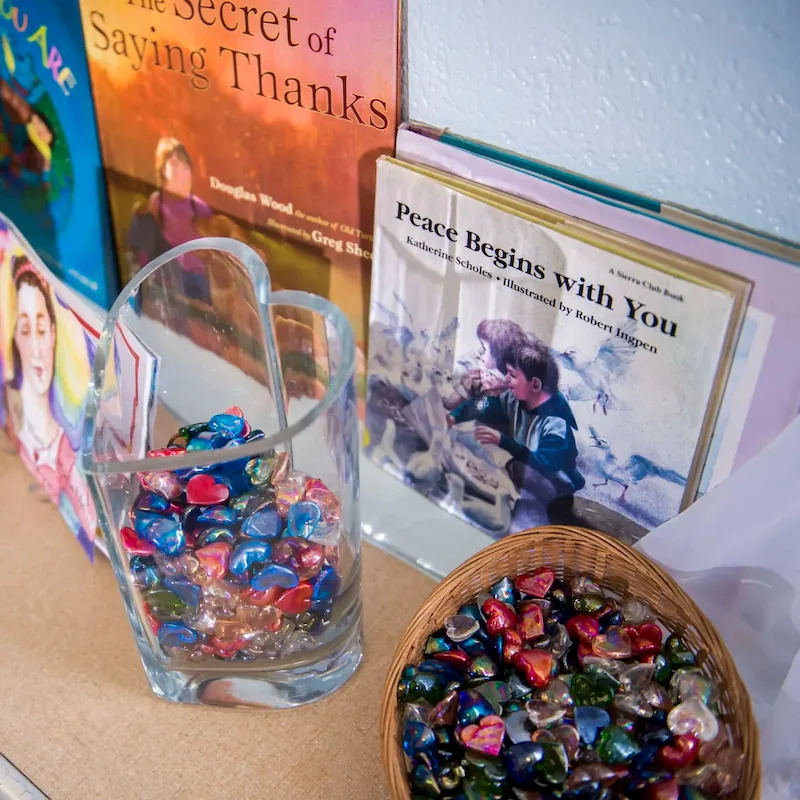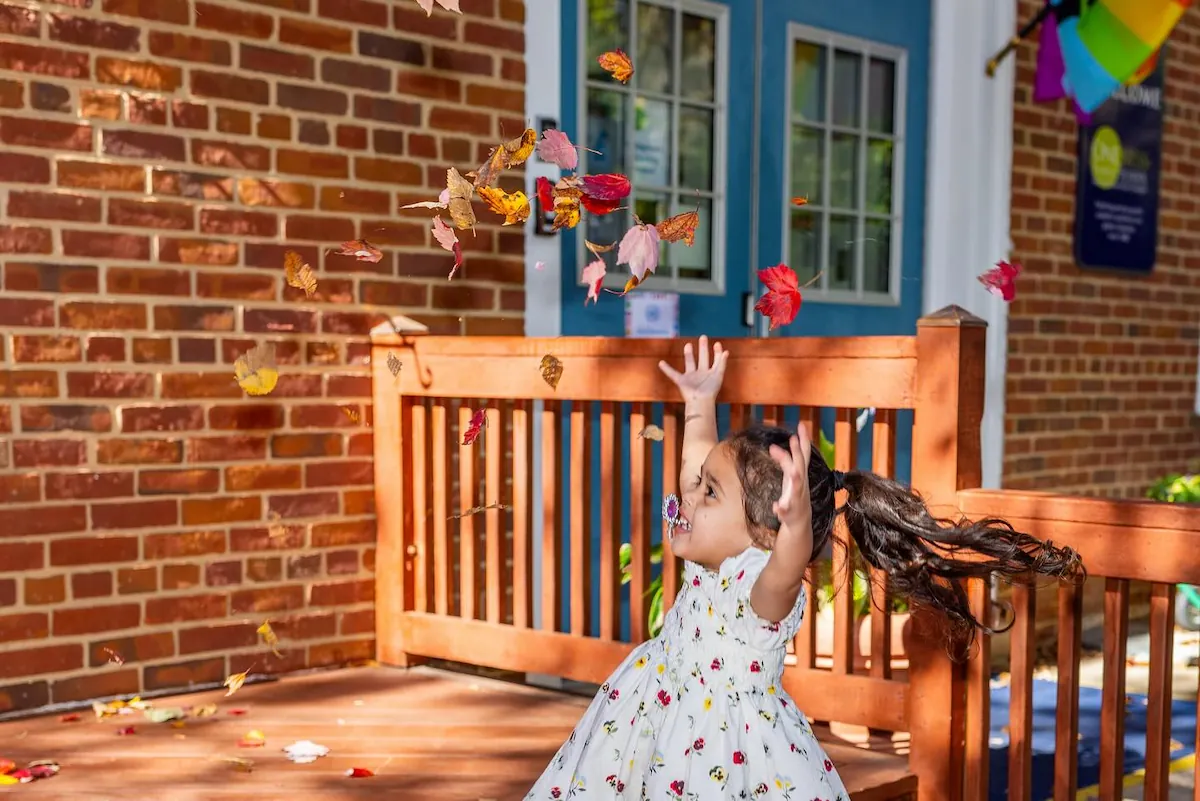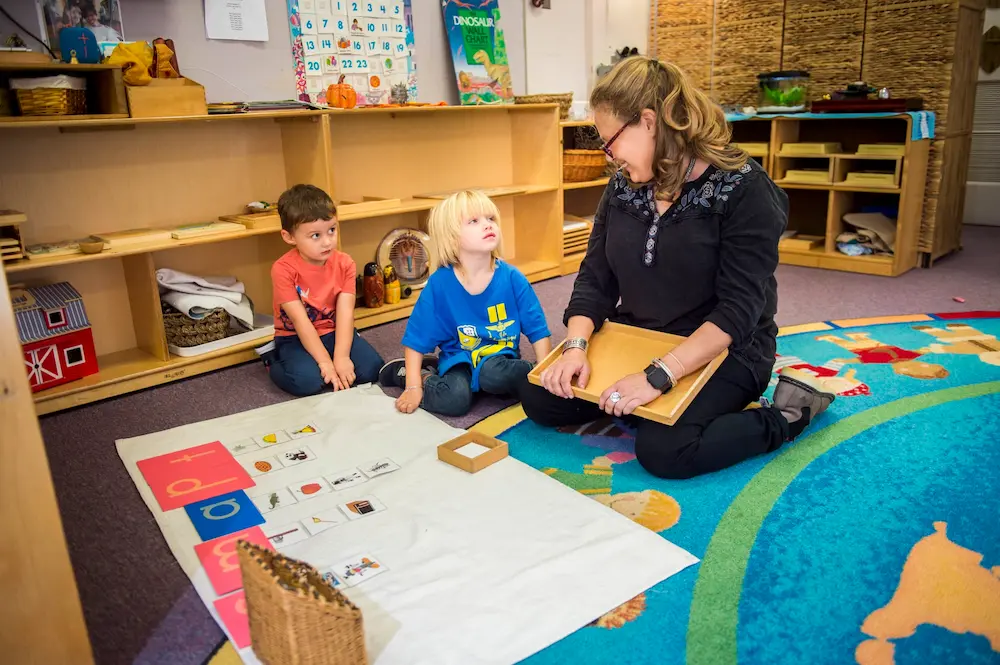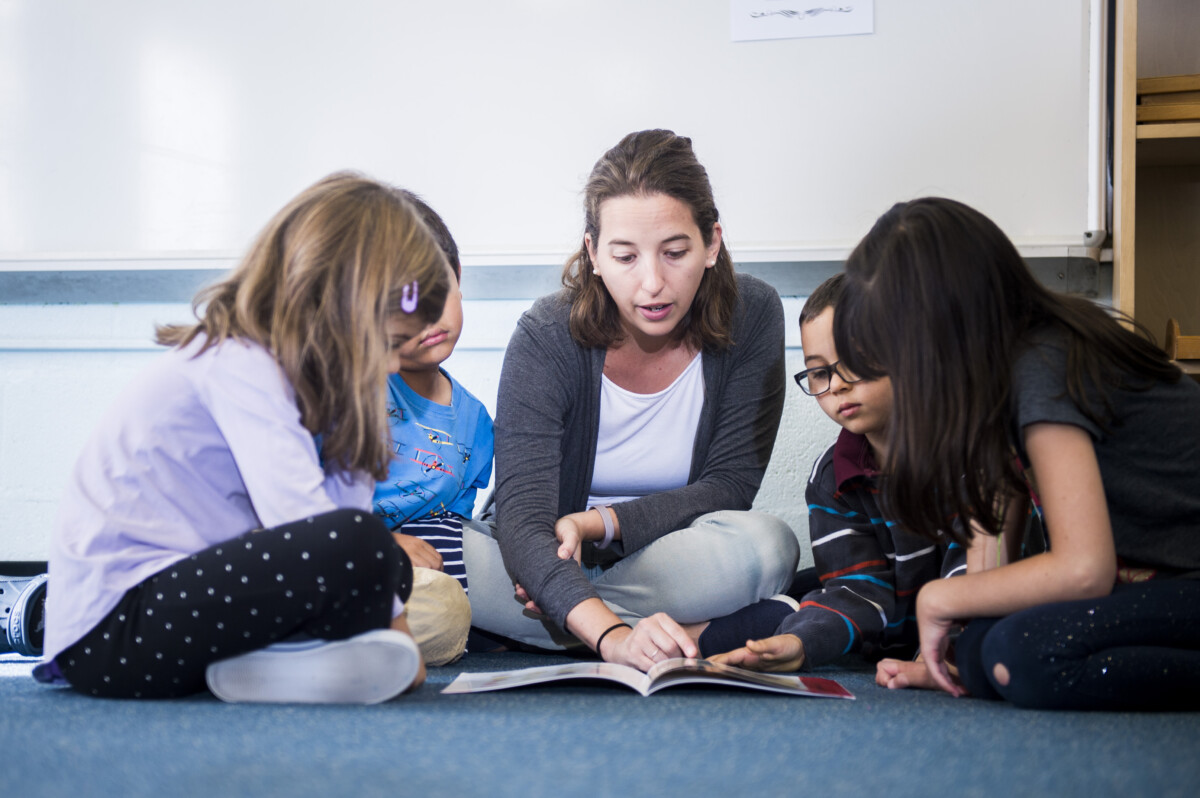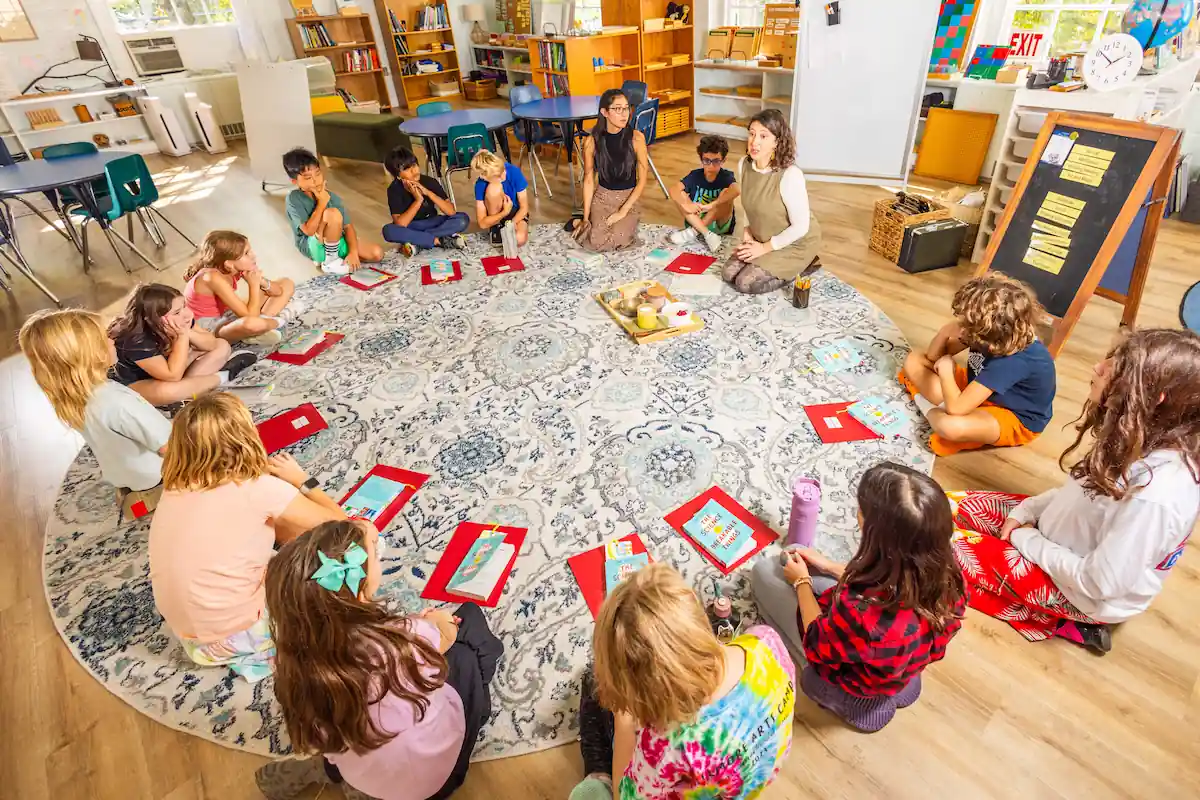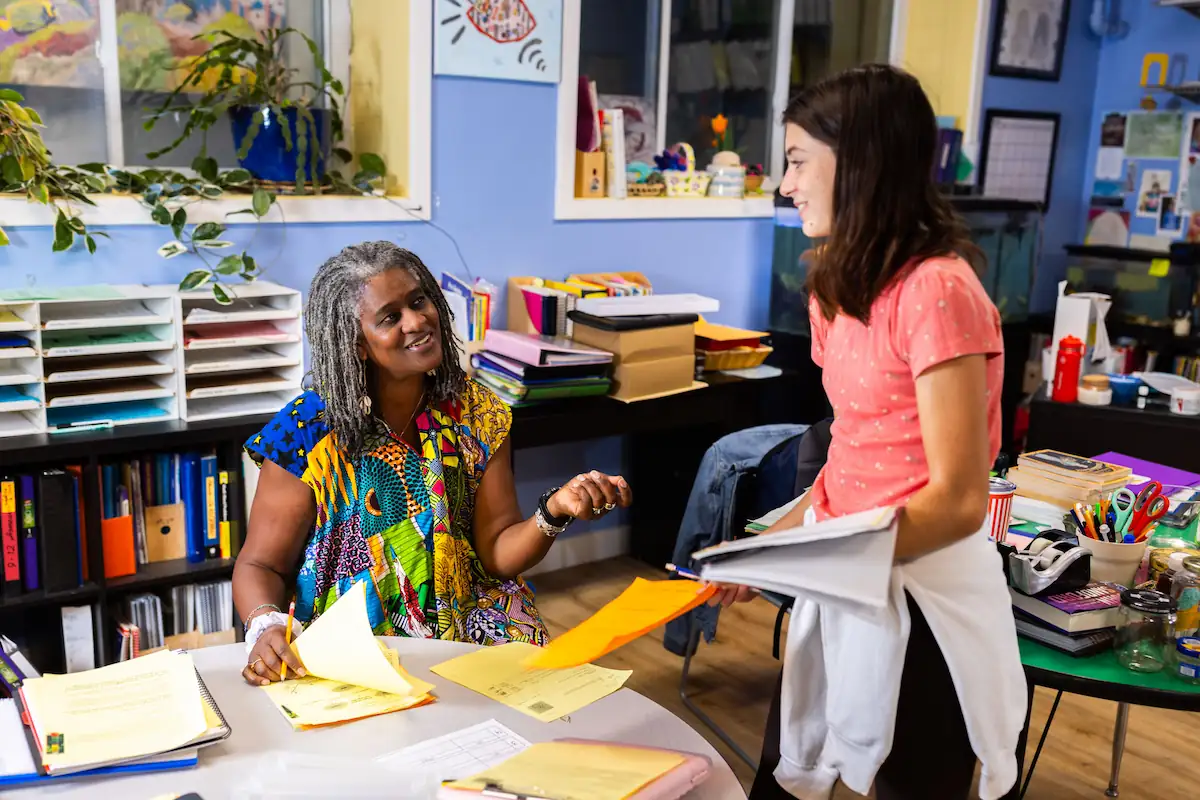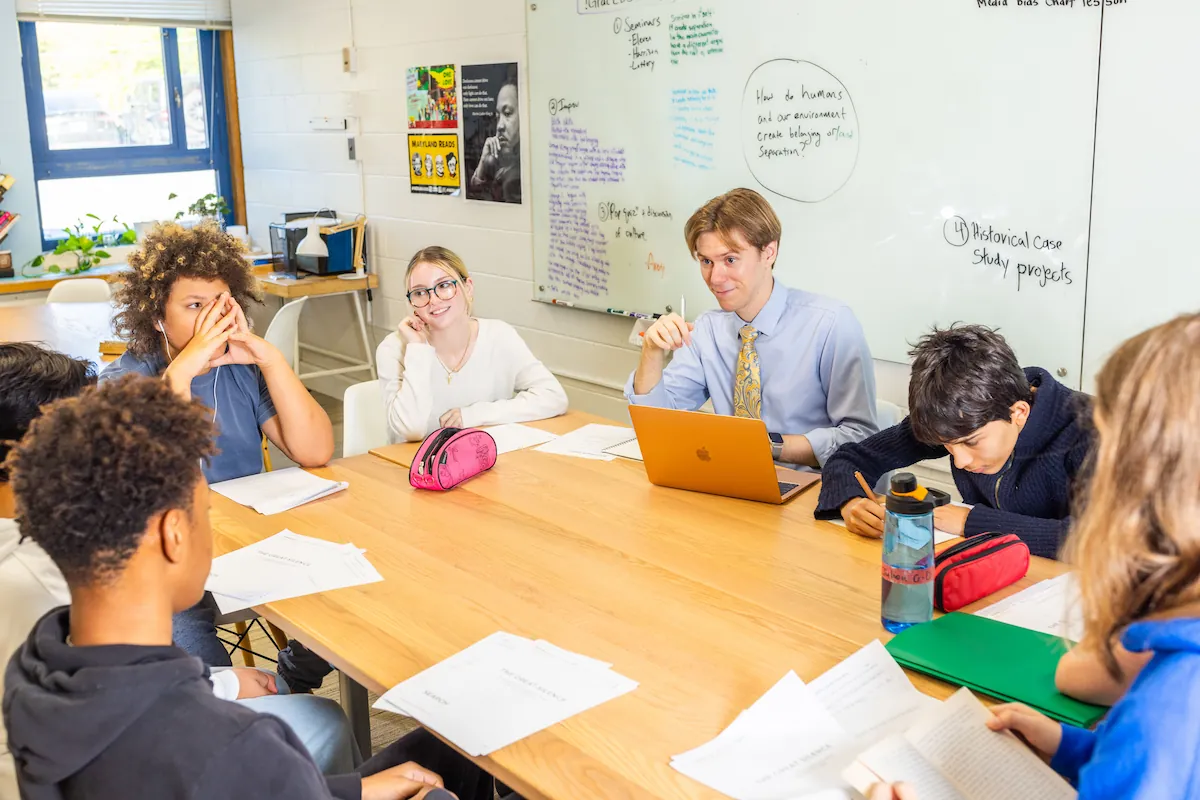Dear OFS Community,
It has come to my attention that there has been some upset and disharmony resulting from recent conversations among parents in our community. OFS has always been a place of open dialogue, where the healthy exchange of ideas is cultivated and where varied perspectives are heard. In that spirit of openness, it has been necessary at times over the years to restate the school’s values, in order to reorient us around the destination toward which we as a school have always been sailing. This seems like this is one of those moments, and so I would like to share my thoughts around the founding of our school and my own story in the hopes that it will clarify what we stand for at Oneness-Family School.
I began high school in 1972, only four years after Robert Kennedy and Martin Luther King Jr. were assassinated. When their lives were cut short it made a deep imprint on my young psyche—I felt that their work was left unfinished and that it was my job to help carry it further, to pick up the torch that they had been carrying. From their lives I gained indelible lessons about the notion of service for the benefit of society, and about how each one of us has a responsibility to do our little part to build a more perfect union in our country and to contribute to a better world.
Later, after traveling the world and attending four different universities, I discovered my own path, the way in which I could follow in the footsteps of those who came before me. That path led me to become a Montessori educator and then eventually to the founding of Oneness-Family School. In the summer of 1988, several months before the school opened its doors, I drafted a document called the Prospectus, in which I envisioned a school “which will be truly international and ecumenical, uniting families of diverse backgrounds in a commonly shared vision of a more peaceful world.” I also wrote that “the school is based on the belief that peace begins with the individual, and that personal growth must go hand in hand with the aspiration for global harmony.”
For the past 32 years, I’ve used those words as my pole star. In fact, our current mission statement does not sound too different from those original visionary pronouncements. As the founder of OFS, I’ve seen hundreds of students walk through our hallways and graduate as kind, self-aware, confident, and courageous human beings. They enter the world as living examples of our core ideals, conscious citizens who can help build a world that is more harmonious, more inclusive, more equitable, more just and more sustainable. These core values, embodied by our graduates, have always meant far more to me than mere words or concepts, more than well-crafted statements in a brochure.
Over the past three decades, the OFS community has always tried to live by these values. When one of our parents was killed in a terrible car crash, our school community raised funds to support the family, cooked meals and took the children into our homes. In the aftermath of 9-11, we came together to deal with the shock of those horrific events and to hold and uplift each other, especially our Muslim brothers and sisters who were facing a national backlash of fear and anger. When a swastika was spray-painted on our school sign, we worked together to scrub it away. And of course, these values are embodied in our school’s United Nations Day celebration – an event that galvanizes the Washington diplomatic community in an annual celebration of unity, where we raise our flags in common purpose and break down barriers through song and food and our children’s spirit of innocent enthusiasm.
At OFS we manifest our ideals with countless gestures of kindness and gratitude, large and small – by having inclusive birthday parties, by taking our friend’s children home when they can’t be picked up by mom or dad, or by reaching out to each other in times of loss. Our ideals are part of the DNA of our school. As such they are woven into our decisions regarding the faculty we select and nurture, the commitment we make to our financial aid program each year, the kinds of activities we organize, and the curriculum that we teach.
When it comes to curriculum, the choices we make about what to teach are grounded directly in those core values we uphold. For instance, do we want to teach history as a mere litany of wars and conquests, or do we want to dig deeper and explore humanity’s long and difficult struggle toward greater partnership and peace?
American History, for example, would be meaningless and grossly misleading if we left out the stories of the Native people or of Black Americans, if we ignored the struggle of women to achieve equal rights, or if we set aside the narratives of so many marginalized immigrant groups. History would be a cruel exercise of willful ignorance if we did not trace the arduous pathway of the American worker striving to reach upward toward the American dream, or if we did not acknowledge that still today the American dream seems increasingly out of reach for a large swath of our society. And if we are too shy to talk about race, then we shrink away from looking at the impact that slavery, the Civil Way, and the era of Jim Crow have had on the structures and attitudes that persist in our society today. Doing so would not be fair to our students if we want to equip them for a full life and a better future.
The principles of harmony, inclusivity, equity, justice, and sustainability are not the purview of any political party. These ideals are not liberal or conservative ideals; they are American ideals. Presidents of all parties throughout our history have expressed these national aspirations and have enshrined them in new legislation. Harmony and inclusivity are values that are etched at the base of the Statue of Liberty in the words, “Give me your tired, your poor, your huddled masses yearning to breathe free.” Equity, the belief that everyone should have an equal opportunity to achieve their dreams, is a primary theme encapsulated by our nation’s founders in the Declaration of Independence and in the Constitution. When we use the word justice, we mean the principle engraved above the entrance of the Supreme court with the words “Equal justice under law.” And when we think of the sustainability of our nation, which has endured 244 years, we confront the growing gap between the wealthiest few and the tens of millions who continue to live in poverty and ask ourselves what kind of future this portends?
The people we most revere through history have lived their own version of these ideals. Maria Montessori began her historic transformation of education by setting up her first school in the slums of Rome, serving the poorest of the poor – mostly children of immigrant factory workers. She would marvel that her approach and educational model have been embraced by governments and luminaries across the globe. However, she would no doubt be asking hard questions about why there aren’t more Montessori schools in our poorest neighborhoods, and why quality education is not accessible to all strata of our society.
I think of Maria Montessori often and reflect upon whether I’m doing enough to honor her legacy, just as I think of Bobby Kennedy and MLK. When I first started this school as a bright-eyed 20-something who didn’t look much older than our oldest students, I had a zeal to make a positive impact on the world. What I didn’t realize is what an impact the school would make on me, and the kind of personal transformation I would undergo. That’s been one of my greatest realizations: that OFS is a place of growth and personal transformation for parents and teachers as well as for students, that we adults are learning along with our children, that we are all working and playing together to gain greater self-knowledge, unfolding and well-being.
OFS has always been a place where we listen to each other’s stories so that we may broaden our horizons of knowledge and deepen our capacities for empathy and love. However, while we keep our hearts open to forgive, and while we are always ready to reach out to better understand, we cannot remain silent in the face of expressions of hate and ignorance, or allow statements that are hurtful to others to go unchecked. Only by constant self-reflection, by making our voices heard and by asking hard questions can we keep our ship on course.
At Oneness-Family School, we have a tremendous opportunity to be a place that fosters harmony and oneness. By cherishing the process of continual learning and by leaning into greater understanding, we have the chance every day to bring forth the better angels of our nature and forge together new stories of how we can live and learn together. Inspired by our children, we can transcend the limiting mindsets and ideas all of us have inherited from our own childhood and educational experience. That’s what we’ve always done at OFS, and that is the work that lies before us as educators and parents. By thinking and acting collaboratively in the spirit of respect and appreciation, we can build upon the first three decades of Oneness-Family School and write the next bright chapters of our history.
My meditation teacher wrote thousands of aphorisms and poems. I recently came across this one, which oddly I had never seen before:
“Inside everybody’s heart,
There is a oneness-family.”
Sincerely,
Andrew Kutt
Founder & Head of Upper School
